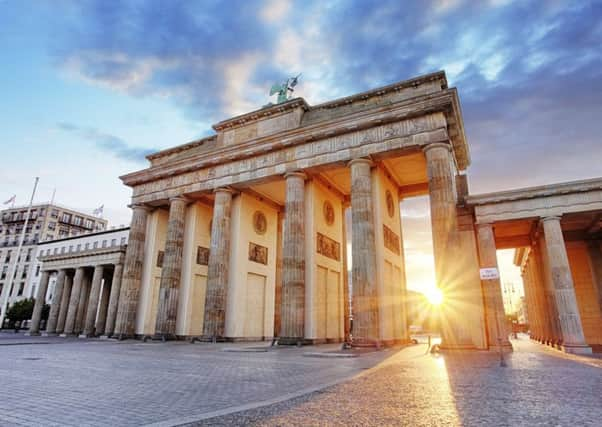Nick Freer: Scotland can learn from Berlin's tech scene
This article contains affiliate links. We may earn a small commission on items purchased through this article, but that does not affect our editorial judgement.


FutureX’s Laura Westring asks us to open our eyes and we find ourselves standing in front of the Berlin Wall in what was “No Man’s Land”, the 27-mile strip of land between the inner and main walls that divided East and West Berlin for almost 30 years before reunification.
Later, we hop back on the U-Bahn for an evening of pitches by start-up founders at Factory, an uber-cool tech campus that straddles the line that divided a nation until 1989. Factory is home to US tech giants Google and Uber, large German corporates like Deutsche Bank and Volkswagen and scores of start-ups.
• READ MORE: Technology news
Advertisement
Hide AdAdvertisement
Hide AdSome of the Scottish contingent get up on stage to pitch and when the formalities of the evening wind down, we get stuck into local craft beer and chilli hotdogs as a DJ starts his set. I introduce myself to a Somalian herdsman who has developed a technology platform for trading goats that aims to remove many of his countrymen from seasonal poverty. Before I know it, we’ve done a selfie and it’s up on Twitter.
We’re in the heart of Berlin’s tech scene and an event running next door is part of the Tech Open Air festival which draws around 20,000 attendees to the city every July. The windows are wide open, warm summer air breezes in and the rain is still falling on the memorial park in the fading light.
I catch a last sight of the wall and get a realisation that what I’ve seen and heard about it today has had more of an impact on me than I first thought. Coming out of the reverie, I notice the local founder who pitched about his plan to launch a bank for refugees is being crowded by a techie fan club. We meet a Kiev-based founder and are soon planning a possible trip out to Ukraine later in the year – we even check flights on Skyscanner as we talk. “Hey, I didn’t know those guys were Scottish”, says Sergey.
Berlin is a remarkable place and there’s a special feeling in the air which is in large part due to the equally remarkable people at FutureX who are running the Berlin Summit in partnership with Entrepreneurial Scotland. Partnering with FutureX on international events is a deft move from Entrepreneurial Scotland, as the team are high quality with strong global networks, particularly in all things digital.
Using a tech analogy, you could describe FutureX as disruptors in entrepreneurial leadership. They also happen to be damn nice folks and, unsurprisingly, have attracted a like-minded collective of not only some of Scotland’s most promising young entrepreneurs and business leaders but CEOs from as far away as Australia.
The fact we’re in Berlin is no accident. Industry commentators view the city as the rightful pretender to London’s tech throne and Europe’s Silicon Valley and see its technology start-up cluster moving ahead of the UK’s capital over the next decade. The trends that support this prediction include the number of international venture capitalists setting up shop in Berlin and stats indicating that German VC exits are set to exceed UK deals for the first time this year.
So what else stacks up in Berlin’s favour? In a beer hall the previous evening, a Glaswegian barman says you can work and live in the city without having to speak German. And, of course, Germany, unlike the UK, has a well-documented open attitude to immigration. Berlin’s tech scene does not have to compete for talent against a “gorilla industry” like the City in London, the cost of living is much cheaper and it’s got a domestic market that is performing strongly with easy access to other European economies.
Advertisement
Hide AdAdvertisement
Hide AdOn the plane home, I consider that if we ever open an international office I’m pretty sure I know where I want it to be.
• Nick Freer is founding director of the Freer Consultancy Click here to ‘Like’ The Scotsman Business on Facebook